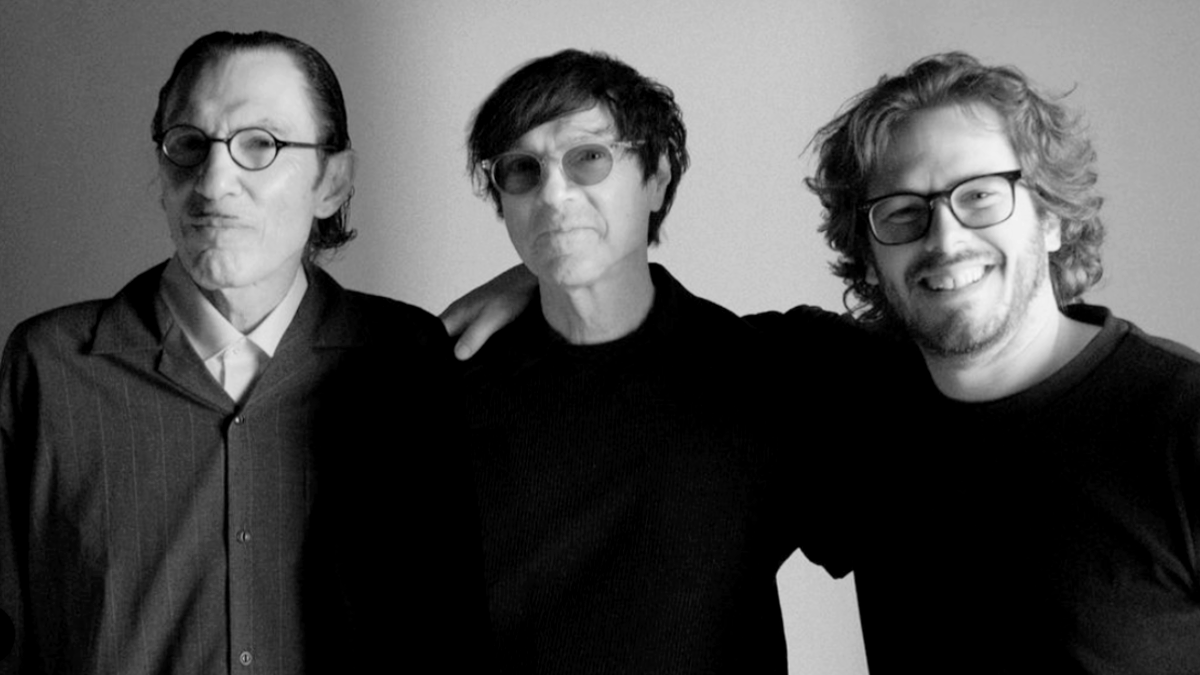
In 2017, noted cinephile (and occasional director) Edgar Wright appeared on Maltin on Movies, Leonard Maltin’s terrific podcast. The two engaged in a delightful conversation about Wright’s upbringing and his varied, extraordinary career. Hearing him gush unabashedly of his cinematic role models, Maltin repeatedly characterizes Wright as a “fanboy” who became a director. Wright’s work supports this claim well, from his earlier career creating Spaced for British television, to a number of genre homages, send-ups, and original parodies with his regular group of collaborators; Wright has been both referential and reverential. The Sparks Brothers is the final piece of evidence needed to establish Wright as the ultimate “fanboy” director. It is an enthusiastic, passionate documentary on the musical duo by, perhaps, their most devoted fan.
Pop duo and brothers, Ron and Russ Mael have been a driving force in art-pop since they released their debut EP in 1967. Often characterized by their penchant for witty lyrics and sense of theatricality, Sparks (their band’s name) is a massive inspiration to the sound of bands such as Oingo Boingo, The Pet Shop Boys, and Depeche Mode. In spite of their massive influence and recognition within the industry, they have had relatively little mainstream success. The under-the-radar wit and whimsy of Sparks matches delightfully with the filmmaking talents of Edgar Wright, an artist whose work is defined by its sardonic charm and impressive, assured vision.
The Sparks Brothers is, in essence, a celebration of the pop pioneers’ whole oeuvre. The film begins with the brothers’ childhood: their early childhood antics, their joint obsession with cinema, and their love of The Beatles. From there, Wright continues to their first band, the Todd Rundgren-produced Halfnelson, gleefully displaying the musical prowess the brothers have developed. The filmmakers graciously grant a front row seat into the artistic development of Sparks. We revel in the band’s successes while also sharing in their defeats. Throughout the duo’s turbulent early years, we find ourselves empathizing with them and wishing for mainstream success, a breakthrough of sorts. Although that degree of success appears to only be ephemeral for this duo, their legacy shines throughout a slew of testimonials — talking head interviews cut into the action — from those who draw more influence from the Maels more than anyone. Wright spends no short amount of time engaging with the many artists who have been inspired by Sparks. A staggering amount of pop culture figures, the likes of which include comedian Patton Oswalt and musicians Beck and Flea, sing the praises of this dynamic pop duo, each interviewee brimming with admiration and respect.
The Sparks Brothers captures every moment of Russ & Ron’s career in painstaking detail; yet anyone, superfan or fan who doesn’t know it yet, can enjoy this lovingly-made story. Some of the film’s finest moments come from interviewees disagreeing about the music. Sparks’ expansive, 54-year career allows for different fans to have very different relationships with the band throughout the decades. Nirvana’s artistic epoch only lasted 7 years, The Beatles had 8; in terms of duration and output, Sparks blows them out of the water, innovating and influencing as time goes by. (This can be exemplified by Todd Rundgren and Jason Schwartzman, thirty-two years apart, speaking fondly and intensively about the duo, despite sharing completely opposing opinions, takes, etc.). Beyond the testimonials, Wright utilizes past interviews with the brothers; concert footage; even scenes from the ill-fated film Rollercoaster which boasts Sparks; and, perhaps most notably, a glorious stop motion segment.
Wright’s love of tactile filmmaking brings him to make the expensive and rather painstaking decision to include multiple brief stop-motion scenes. The fanboy reveals himself at full force with these segments, taking a great risk by breaking from the conventions of documentary filmmaking: Adding his own core beliefs through that classic Wright zaniness. The embellishment and zest added by the stop motion separates this documentary from the rest. The decision to break briefly from the structure of the documentary to have delightful sequences of the artifice of filmmaking not only gives Wright the opportunity to experiment within the genre, but it gives him a wonderful opportunity to reflect on the varied and eclectic career of the duo. Wright’s artistic sensibility is at the forefront of the film. Rather than seeming like an attempt to cash in, this film comes off as an earnest and heartfelt love letter. This is no side job for the director and fanboy Wright; this is as fully-fledged, and as thoroughly conceived, as any one of Wright’s fiction, “bigger” films.
The Sparks Brothers is filled with beautiful moments and innovations that are nothing short of inspiring. Few documentaries I’ve seen contain the enthusiasm, such a rich, deepened love for its subjects, presented by Edgar Wright and The Sparks Brothers. Wright’s love is palpable, his talent is immeasurable, and this documentary is a beautiful experience.